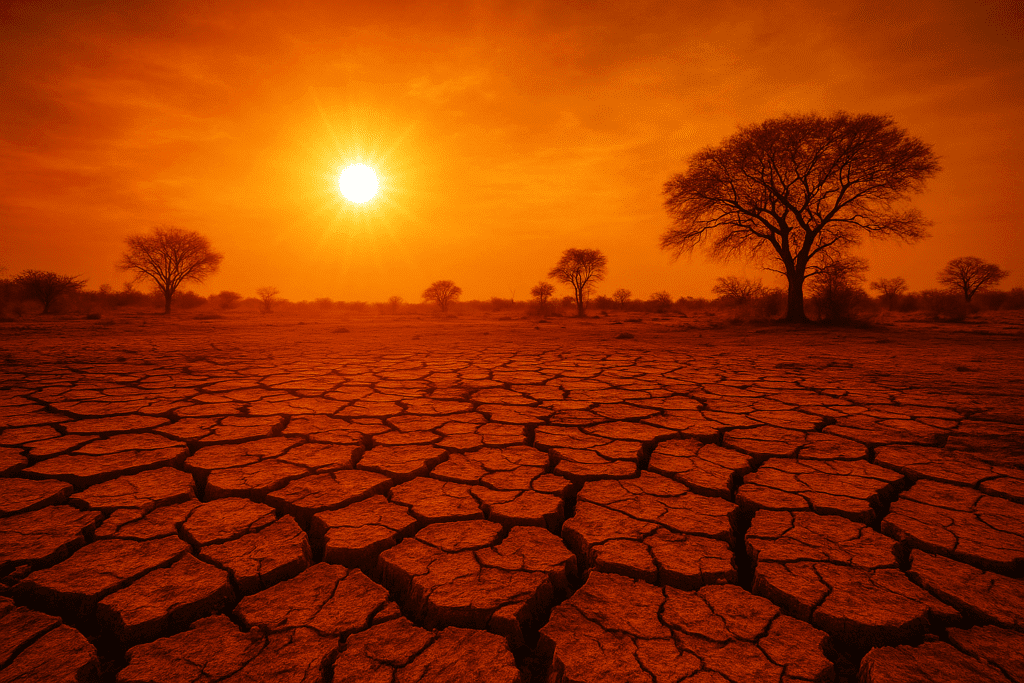A Sobering Environmental Milestone
On July 23, 2024, the world witnessed a devastating environmental milestone as the day was recorded as the hottest day on Earth in recorded history. Global temperatures soared to an alarming 17.15°C (62.87°F), surpassing the previous record of 17.01°C set in 2020. This unprecedented spike in temperatures is a stark reminder of the accelerating global warming crisis, with experts attributing the extreme heat to the ongoing and intensifying impacts of climate change.
The new temperature record is more than just a statistical anomaly—it serves as a wake-up call for the global community, underscoring the urgent need for substantial action to mitigate climate change. The heatwave, which has gripped much of the planet, highlights the dangerous trajectory that the world is on and the increasing unpredictability of weather patterns.
Global Consequences: Wildfires, Agriculture, and Water Strain
The consequences of the record-breaking heat have been profound, affecting global weather patterns, agriculture, and energy systems. In many parts of the world, the extreme heat has fueled devastating wildfires, particularly in areas like the U.S. West, Southern Europe, and Australia. Wildfires have ravaged large swaths of land, destroyed homes, and claimed lives. In addition to the direct human toll, these fires have released vast amounts of carbon into the atmosphere, exacerbating the very problem they are a result of.
The intense heat has also placed immense pressure on agricultural systems, with crop failures reported in multiple regions due to droughts and excessive heat. The agricultural sector, already strained by global supply chain disruptions, now faces even greater challenges, as farmers struggle to deal with unfavorable growing conditions. In some countries, food production is expected to drop, further destabilizing global food security.
Water resources, too, have become increasingly strained. Many regions are experiencing severe droughts, leading to reduced water availability for both human consumption and irrigation. This has had a particularly severe impact in areas already facing water scarcity, compounding the challenges of ensuring access to clean water for populations in need.
Calls for Urgent Climate Action
In response to the escalating crisis, the United Nations has issued a stark warning calling for urgent climate action. The UN has urged governments around the world to prioritize sustainable energy solutions, reduce carbon emissions, and invest in climate resilience strategies to prepare for increasingly frequent and intense climate events. The rising temperatures, alongside the extreme weather events of recent months, demonstrate the severity of the climate challenge and the need for immediate, decisive action.
International cooperation has been emphasized as crucial to combating climate change, as no single country can solve this problem alone. The global nature of the crisis requires a collective effort to transition to cleaner energy, invest in green technologies, and enforce stronger environmental protections. Bold policy shifts, including international climate agreements, sustainable infrastructure development, and widespread efforts to reduce greenhouse gas emissions, are seen as essential to mitigating the worst effects of global warming.
A Growing Crisis: The Need for Long-Term Change
The record-breaking heatwave of July 2024 is not just a momentary anomaly—it is a reflection of the broader environmental and climate changes that are taking place at an increasingly rapid pace. As the world grapples with the growing frequency of extreme weather events, from heatwaves and wildfires to floods and hurricanes, it has become increasingly clear that the planet’s climate is undergoing profound and irreversible shifts.
Addressing climate change requires a global, coordinated response that spans nations, industries, and communities. The events of 2024 serve as a wake-up call, demonstrating that the impacts of climate change are no longer a distant concern but a pressing and immediate challenge. If left unchecked, these trends will only worsen, leading to more severe and far-reaching consequences for the planet’s ecosystems, economies, and populations.
The record-breaking temperatures and extreme weather of 2024 have underscored the need for bold, transformative action. Climate change is an existential threat that requires an urgent response from governments, businesses, and individuals worldwide. Now, more than ever, the world must come together to address this global crisis and work towards a more sustainable and resilient future.
